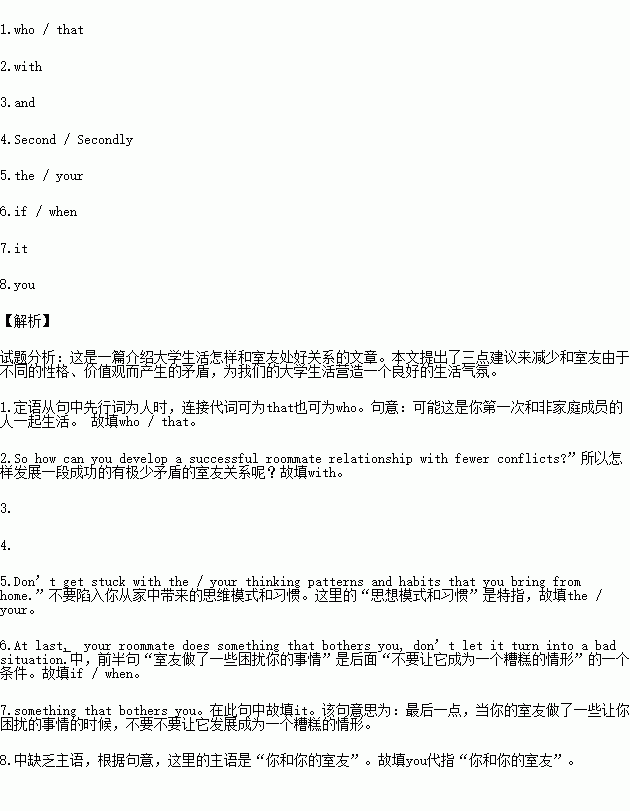题目内容
Directions: Complete the following passage by filling in each blank with one word that best fits the context.
Leaving for college can be a big challenging learning experience. Maybe this is the first time for you to live with people1.aren’t your family members. Because of the differences in values and personalities, unavoidably, conflicts may easily arise betweenroommates.
So how can you develop a successful roommate relationship2.fewer conflicts? First, lose your shyness 3.open up to your roommates by talking about the common interest, which can help you learn each other’s different cultural or social backgrounds. 4., be flexible with your roommatesand adjust your thinking to new situations. Don’t get stuck with 5.thinking patterns and habits that you bring from home. At last, 6.your roommate does something that bothers you, don’t let 7.turn into a bad situation.Try to work together to reach a compromise that8.can both live with.
In a word, a harmonious roommate relationship lies in the friendly communication, mutual respectand acceptance of others’ differences.
 天天向上一本好卷系列答案
天天向上一本好卷系列答案 小学生10分钟应用题系列答案
小学生10分钟应用题系列答案
